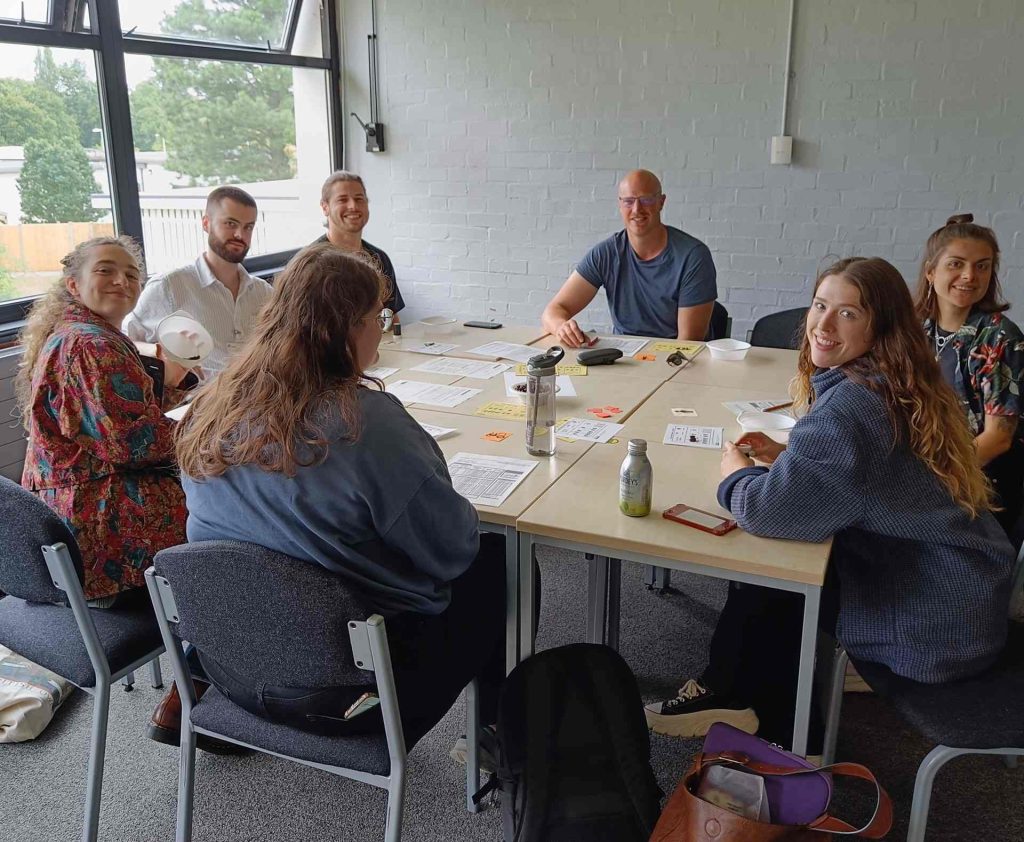
FBS students participating in the CAULDRON game
The University of Reading is a member of the Food Biosystems Doctoral Training Partnership (DTP), and the Walker Academy provided three workshops for 1st and 3rd year PhD students who are studying under this programme.
The vision of the FoodBioSystems DTP is to develop a cohort of bio scientists with in-depth knowledge and technical expertise of food systems and biological processes across the Agri-Food system, ‘’from pre-farm to post-fork’. The purpose is to train future experts with the skills needed to transform the food value chain and address challenges of sustainability, efficacy, authenticity and safety in food production systems, whilst delivering better nutrition and concomitant health benefits for society.
A large proportion of the DTP students’ research focus is on one small, and often technical, element of the food system. They receive little other training to help them contextualise their work within the larger food system, help them engage with other stakeholders, or contribute to food policy debates.
These workshops help students to develop a collaborative mind set that will enable them to map their area of focus within the wider landscape of the Food System.
The workshops for the 2024 Summer School took place at the University of Reading. 28 students from Year 1 and 6 students from Year 3 participated, from all the Food Biosystems partnership institutions: Aberystwyth University, Brunel University, Cranfield University, Queen’s University Belfast, University of Reading, and University of Surrey.
Prof. Rosalind Cornforth and Dr. Celia Petty designed and delivered all three workshops with the support of Konstantina Pratta.
Students comments on what they found interesting and unique:
“Realising how niche subjects can be”
***
“I have never considered stakeholders in my research. It was good and useful to talk about that”
***
“Interesting to learn how to prioritise working outside of limited scientific circle and expanding to collaborate with relevant organisations, etc.”
***
“I always thought my project was quite stranded and disconnected from other cohort student projects, but this proved me very wrong”
***
“That despite our great differences, there are always multiple connections. E.g., my project (insects for livestock feed) can pair with another sustainability-based project”
***
“How many industries can actually be involved in such small individual projects”

